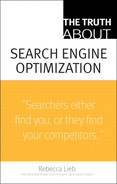Want to get into the fast lane of building a solid link strategy? Think blogs. Blogs have soared in popularity over recent years, and with good reason. They’re an efficient, easy, and low cost way to communicate and publish ideas. Otherwise put, blogs are an excellent way to generate high-quality content, generally around a specific unifying theme.
Sound familiar? It should, given that high-quality, keyword-rich content is also one of the primary components of search engine optimization. It’s no small wonder that Google acquired Blogger, a popular blogging platform, early in the evolution of the channel.
There is a panoply of reasons to integrate blogging into marketing and communications initiatives. This is evidenced by the fact that blogs have been embraced by the marketing community. Blogs have another recognized and relevant function where SEO is concerned: Blogs are an invaluable tool for building up links, both in- and outbound.
Blogs are literally built to attract search engine crawlers and spiders. Their architecture and design are structured for clear navigation, with every page set up to link back to other primary pages. It is no surprise that in recent years, many successful and profitable publishers have built editorial products entirely on commercial blog platforms.
A blog can easily be set up to repeat target keywords in the titles of individual posts, category names, URLs, in tags, and in the links that appear as footers on each post. The RSS feeds generated by a blog are automatically picked up by search engines at regular intervals, as are the pages themselves. (By the way, feeds should be registered with the blog search engine, technorati.com.)
You don’t need to post frequently, but every time you do, it’s like strewing spider-bait, as far as the search engines are concerned. Blogs are very easily crawlable—and therein lies powerful linking advantage.
Blogs contain several different types of links. Not all of them have the same degree of link-love power, but all are highly useful in enhancing a link-building strategy.
Many blogs feature a blogroll on the homepage. A blogroll is a list of blogs recommended or endorsed by the author(s). Remember how links are equated to “votes” or “endorsements” by search engines? This is a literal opportunity to do just that, while contextualizing the content of your own blog. For example, if you’re blogging about cars, and your blogroll links to 10 or 12 other automotive-related blogs, you’re not only imparting link love on your blogging colleagues; at the same time, you’re giving Yahoo!, Google, and MSN a clearer idea of your own content niche.
An increasing number of blogs support businesses, organizations, events, or any number of commercial entities. This isn’t just to boost exposure and visibility on the communications front, but also because blogs can dramatically help increase the search visibility of the sites they support or are related to. This can be achieved in the blog’s tagline, like so:
The XYZ Blog
by John Doe, CEO of XYZ Corp.
In this example, “XYZ Corp.” links to the homepage of the company, and perhaps the author “John Doe” links to his corporate bio on the site. When setting up authors on a blog platform, the person or persons authorized to post entries can associate an URL with his or her name—yet more link potential.
The most potent link juice blogs can offer are the links in actual posts. When writing blog content, link early and link often, particularly to other blogs. Bloggers are highly aware of and sensitive to the power of link love (or should we call it link karma?) and will often reward inbound links with links back to your blog without being asked to return the favor. In the case of a blog that exists to promote another website or business, remember that spiders crawl links, and all this additional linking serves the purpose of creating additional pathways—some direct, and some indirect—back to the target of the optimization effort.
As with any and all web content, remember that you’re not blogging for search engines. You’re blogging for human readers, and having a solid content strategy for a blog is of paramount importance. That’s how you’re going to get others to read and link to it in the first place. Your first order of business should be to produce solid content, not to attract or to play tricks on search engines. With that in mind, remember that being topical or even controversial is likely to attract more attention, and therefore more links.
There are some aspects of blog linking that you shouldn’t lose too much sleep over. Trackbacks add a bit of link juice, but due to spamming, not as much as they once did. That said, trackbacks provide a very useful function by letting you know who’s linking to your posts. This can result in discussion and potentially new links down the road.
Links in blog post comments have also fallen prey to spammers, and are, therefore, of only limited link value (and sometimes none at all, depending on the blog platform used). However like trackbacks, they open avenues for further communication and dialog.
And anyway, you’d never comment on a blog post just because you were looking to add another link to your site, would you? Of course you wouldn’t. You’d comment because you had something valuable, interesting, or useful to say!
